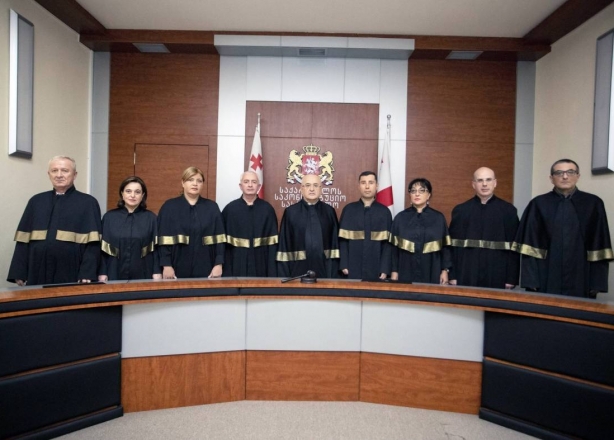News
Constitutional Court upheld the Constitutional Claim N813
The disputed norm on the case defined the rule for the formation of a unified list of voters and established that the data of a voter shall be included into the unified list of voters according to the place of their registration.
By the argumentation of the complainant, on the basis of the disputed norm, a voter who was removed from the registration by place of residence, whose registration was declared invalid or who was registered without specifying the address, could not be included in the unified list of voters. The inclusion of this category of persons in the unified list of voters depended on the development of a temporary, exceptional rule before the elections, with the transitional provisions of the Election Code of Georgia and the resolutions of the Central Election Commission, which gave the voters of this category the opportunity to register and vote for specific elections. Therefore, according to the claimant's explanation, the disputed norm excluded the possibility of fully enjoying the active right to vote and contradicted the right to vote enshrined in the Constitution of Georgia.
According to the position of the respondent, the Parliament of Georgia, on the basis of the disputed norm, the determination of the place of voter registration as a principle of the formation of a unified list of voters served the purpose of effective administration of the election system. Such an approach excluded the manipulation with flows of voters and, in this way, insured the risks of election fraud and violation of the principle of equality of votes.
Based on the analysis of the legislation, testimony of witnesses and materials presented in the case, the Constitutional Court of Georgia came to the conclusion that the disputed norm excluded the category of persons in a similar situation as the complainant from the unified list of voters. As a result, the availability of the right to vote for the persons in question, every time, depended on the elaboration of additional and temporary legislative regulations prior to the elections.
The Constitutional Court noted that for the formation of democratic governance, full implementation of the right to vote is essential. Accordingly, the legislator should take all possible measures so that all those persons, who are granted by the Constitution of Georgia with an active voting right, are able to come to the elections and express their opinion by voting. Based on this, the Constitutional Court ruled that any restriction that excludes the possibility of an individual voter, especially a specific category of voter, to participate in the elections, ought to be selected with extra caution and be subject to strict constitutional scrutiny.
The Constitutional Court found that the impugned regulation served to achieve valuable public legitimate goals, and the restrictive measure was an appropriate and necessary means of achieving the stated legitimate objectives. At the same time, the Constitutional Court indicated that the intensive restriction imposed by the disputed norm, which excluded persons without registration or those registered without specifying their address, from entering the unified list of voters, established an unfair balance between the interests of ensuring the smooth administration of the election process and the proper guarantee of the active right to vote, especially in the circumstances when, in parallel with appealing to the complication of election administration, the legislator, in order to ensure the right to vote of unregistered or registered voters without indicating their address, had established a uniform practice of regulating the issue under consideration with temporary, although updated, transitional provisions.
In view of the above-mentioned arguments, the Constitutional Court of Georgia deemed the first sentence of the paragraph 3 of the Article 31 of “Election Code of Georgia” (legislative edition valid before July 27, 2018) as unconstitutional in relation to Article 24 of the Constitution of Georgia.
Subject of the Dispute: the constitutionality of the first sentence of the paragraph 3 of the Article 31 of “Election Code of Georgia” (edition valid before July 27, 2018) in relevance with Article 28 of the Constitution of Georgia (edition valid before December 16, 2018).


